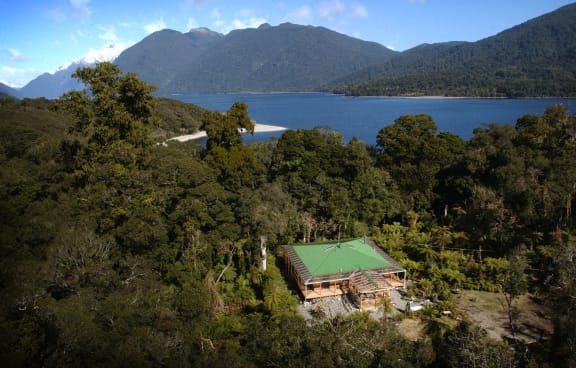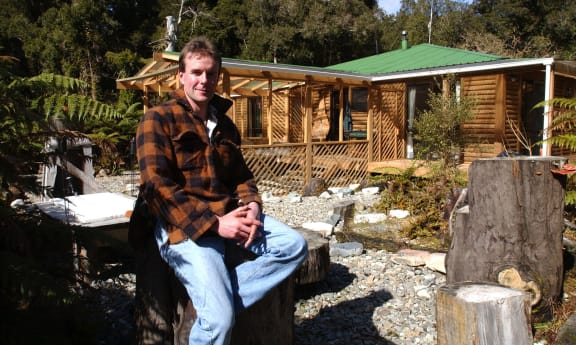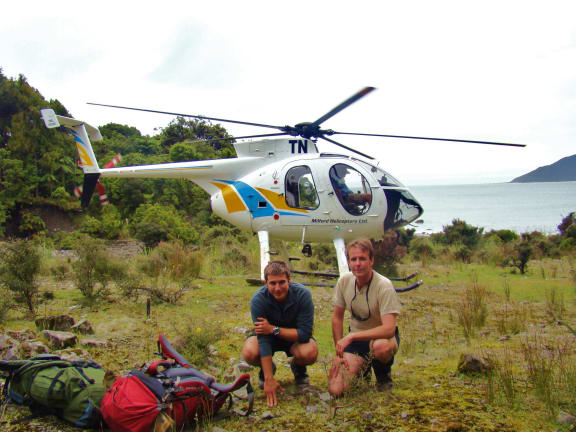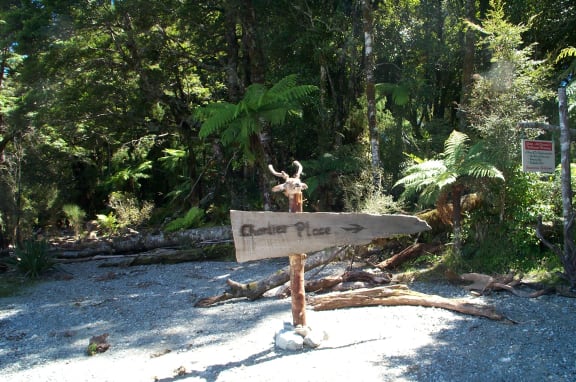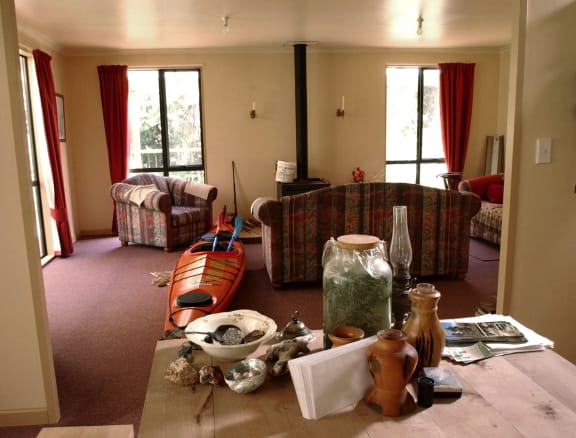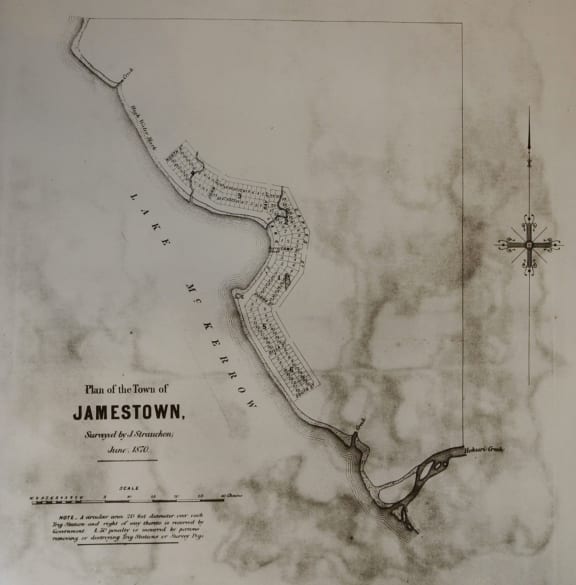Twenty years ago Charlie Paterson built himself a home in Fiordland National Park where his closest neighbour was five hours walk away.
His dream was to run it as one of New Zealand's most remote B&Bs, set in lush forest on the shore of Lake McKerrow, in the Hollyford Valley.
That wilderness home turned out to be one that he loved and hated. His book, Out Of The Wild, tells of the seven-year physical, financial, and emotional battle to build it in the late 1990s.
In 1995, Charlie bought two rare titles in the Park, at Jamestown, north of Milford Sound, inland from Martins Bay.
Jamestown was set up in 1870, with the idea of creating a West Coast port to service the goldfields of central Otago, but was deserted by 1879.
However a handful of freehold land titles were passed from early settlers down the generations.
Charlie started researching the titles while still working in Stewart Island as a salmon farm manager.
His initial interest in the titles was greed, he says, the idea he might make a profit. But he got interested in creating a homestay business, and made the first ever application under the Resource Management Act for the development on freehold land within the Park.
It took two years to get a compliance certificate – and another three months just to get the materials to the site.
The initial plan was to helicopter building materials directly to the site but a “stuff up right at the beginning” meant he had to chopper them to the head of Lake McKerrow and then make barges to float the materials down the lake.
later when he ran out of money he had to float the materials down the Hollyford River and then on to the lake and on to the site.
There was no option but to carry on – knowing if he didn’t finish the house he’d lose everything financially. “If you have an unbuilt house in the middle of Fiordland it would just go to wrack and ruin.”
Family was a huge help – his parents gave financial assistance and his brother organised radio contact twice a week – and he sometimes worked in Queenstown as a stoker on the Earnslaw steamship.
He catered for backpackers and trampers walking the Hollyford Track, and says he met many amazing people in the tourist season.
Over the winters, though, he’d spend three months on his own, not speaking to anyone - and one incident after an isolated winter made him realise it was taking a toll mentally.
“When I saw some trampers coming down the Hollyford Track I actually hid and watched them walk past,” he says. “You become very introverted, very used to your own company."
There were times of peacefulness and tranquillity, but others when he was stressed about how he would survive.
“It’s a place that I love and hate,” he says.
He brought in food supplies every six months and, because he couldn’t run a freezer, lived on dried food, tinned goods and venison. His diet led to health complications including a bleeding bowel.
In the end, it was what he calls a ‘God moment’ that helped him out.
“Everything got too much for me and I got down on my knees and I prayed to God and I felt direction to move on.
“When you have those God moments in the wilderness your life can change - and that’s what happened to me.”
He returned to working in Queenstown and put the house and land on the market.
“Everyone gets a romantic vision of owning a block of bush in the middle of a park but the reality is that it’s something that not everyone can afford to do.
“I had a romantic vision of business and tried to do everything on the cheap – but when you involve helicopters it’s a rich man’s game, really.”
His life now is completely different. After managing a hostel in Deep Cove and a short period of charity work with Habitat for Humanity in Mali, he now lives in Invercargill, and is married with two young children. “Life’s good – real blessings,” he says.
